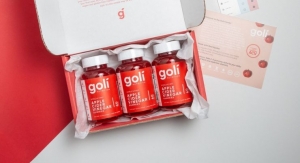Joerg Gruenwald, analyze & realize ag11.03.14
Europe does many things differently when it concerns regulations of health products—for mostly historical reasons. Each European Member State has its own tradition and regulations, and while the EU has begun to harmonize policies, national law still supersedes.
However, there are a few aspects of developing and marketing harmonized health products that are notably different from U.S. regulations. The most obvious difference is the existence of a Novel Food status for ingredients not in significant use in the EU before May 1997. Dietary supplements are subject to food regulations and therefore can only contain ingredients that have food status, and cannot claim to treat or prevent any disease. The recently updated labeling regulations affect health claims made on foods (including dietary supplements) in that only claims from the respective positive lists or proprietary, approved health claims can be used.
A Complicated Case
For botanicals, the situation is even more complicated. Most health claim applications involving botanicals are not currently being evaluated, and those that have been already have mostly been rejected. The European Food Safety Authority (EFSA), tasked with evaluating the health claim applications, has put the reviews on hold pending an agreement on how botanical claims should be handled. This effectively puts all health claims on botanical ingredients in limbo. The problem is that botanical food supplements, according to applicable regulations, currently require more stringent clinical trials to substantiate health claims than traditional herbal medicinal products, for which no proof of efficacy whatsoever is needed. This creates a discrepancy that the EU is currently reflecting on.
Some manufacturers make use of this unresolved situation by continuing to use those claims that were put on hold—on grounds that they have not been rejected, and this is, in fact, a legal gray zone. As far as the EU Commission is concerned, there is no pressing need to come to a decision on botanical claim evaluations, or even to harmonize health claims concerning botanicals across Europe. Botanicals are treated as “other substances,” as opposed to vitamins and minerals, and as such the food law framework is applicable to them. Further harmonization, according to the EU Commission, is not necessary and not even feasible, as there are too many national differences and scientific and methodological difficulties to overcome.
So European countries continue to use their own national legislations based on tradition, which, needless to say, presents a very disjointed picture to those non-European companies that wish to market their products in the EU. A mutual recognition procedure that allows for easier launch of a product marketed in one EU country into another does exist, but it still requires a lengthy period of evaluation (90 days or more), and even a risk of eventual rejection of the marketing authorization application if the product in question is considered unsafe. Thus, mutual recognition is not an ideal option if a product is to be launched in more than one EU Member State.
If that is not discouraging enough, the food law framework mentioned previously consists of no less than 12 different regulations (general food law, food supplements law, Novel Foods regulation, fortification regulation, health claims regulations, additives regulation, labeling rules, and more rules concerning contaminants, pesticides, extraction solvents and irradiation) that manufacturers have to be aware of before developing food products for the European markets. All of these regulations have various national implementations to boot. It can certainly be argued that there is some need for further harmonization, or at least consolidation, of regulations, even on the EU level.
In order to make things easier for manufacturers, options are currently being discussed within the EU; one of them is changing applicable regulations to address the specific issues of botanicals. A number of Member States and, of course, the botanical sector of the industry (supplements and tea) are in favor of this.
BelFrIt
Meanwhile, some EU countries take matters into their own hands and formulate their own lists of botanicals that can or cannot be used in dietary supplements. Most notably, the BelFrIt list of plants and their related health claims has been turned into a lawful decree in Italy, making it legally binding, while other countries’ plant lists, such as the German one, remain merely guidelines. Italy even goes so far as to make the health claims to be used with the plants legally binding, dissociating itself completely from the European health claim regulation.
Originally, the BelFrIt list was jointly created by Belgium, France and Italy. The three countries had been working on this list for years before Italy turned it into national food law. According to experts, this move might result in further harmonization across Europe as other Member States adopt and add to this joint list—and possibly even turn it into national law. The BelFrIt list is considered a living document in that it may still be updated to include more plants, or to exclude them, as the case may be.
Some countries such as the U.K., Germany and the Nordic nations are resistant to adopting such a unified list, as they traditionally consider many plants included in BelFrIt as medicinal only. This has not kept some German advisors to the Commission from expressing approval for the initiative itself.
Harmonization efforts, thus, are ongoing, and it will be interesting to see where they may eventually lead. While a harmonized botanical list is a desirable goal, it is not expected to be realized for the foreseeable future—national interests are too diverse.
Dr. Joerg Gruenwald is president of analyze & realize ag, a specialized business consulting company and CRO in the fields of nutraceuticals, dietary supplements, herbals and functional food, and author of the PDR for Herbal Medicines. He can be reached at analyze & realize ag, Waldseeweg 6, 13467 Berlin, Germany, Tel: 49-30-40008100; Fax: 49-30-40008500; E-mail: jgruenwald@analyze-realize.com; Website: www.analyze-realize.com.
However, there are a few aspects of developing and marketing harmonized health products that are notably different from U.S. regulations. The most obvious difference is the existence of a Novel Food status for ingredients not in significant use in the EU before May 1997. Dietary supplements are subject to food regulations and therefore can only contain ingredients that have food status, and cannot claim to treat or prevent any disease. The recently updated labeling regulations affect health claims made on foods (including dietary supplements) in that only claims from the respective positive lists or proprietary, approved health claims can be used.
A Complicated Case
For botanicals, the situation is even more complicated. Most health claim applications involving botanicals are not currently being evaluated, and those that have been already have mostly been rejected. The European Food Safety Authority (EFSA), tasked with evaluating the health claim applications, has put the reviews on hold pending an agreement on how botanical claims should be handled. This effectively puts all health claims on botanical ingredients in limbo. The problem is that botanical food supplements, according to applicable regulations, currently require more stringent clinical trials to substantiate health claims than traditional herbal medicinal products, for which no proof of efficacy whatsoever is needed. This creates a discrepancy that the EU is currently reflecting on.
Some manufacturers make use of this unresolved situation by continuing to use those claims that were put on hold—on grounds that they have not been rejected, and this is, in fact, a legal gray zone. As far as the EU Commission is concerned, there is no pressing need to come to a decision on botanical claim evaluations, or even to harmonize health claims concerning botanicals across Europe. Botanicals are treated as “other substances,” as opposed to vitamins and minerals, and as such the food law framework is applicable to them. Further harmonization, according to the EU Commission, is not necessary and not even feasible, as there are too many national differences and scientific and methodological difficulties to overcome.
So European countries continue to use their own national legislations based on tradition, which, needless to say, presents a very disjointed picture to those non-European companies that wish to market their products in the EU. A mutual recognition procedure that allows for easier launch of a product marketed in one EU country into another does exist, but it still requires a lengthy period of evaluation (90 days or more), and even a risk of eventual rejection of the marketing authorization application if the product in question is considered unsafe. Thus, mutual recognition is not an ideal option if a product is to be launched in more than one EU Member State.
If that is not discouraging enough, the food law framework mentioned previously consists of no less than 12 different regulations (general food law, food supplements law, Novel Foods regulation, fortification regulation, health claims regulations, additives regulation, labeling rules, and more rules concerning contaminants, pesticides, extraction solvents and irradiation) that manufacturers have to be aware of before developing food products for the European markets. All of these regulations have various national implementations to boot. It can certainly be argued that there is some need for further harmonization, or at least consolidation, of regulations, even on the EU level.
In order to make things easier for manufacturers, options are currently being discussed within the EU; one of them is changing applicable regulations to address the specific issues of botanicals. A number of Member States and, of course, the botanical sector of the industry (supplements and tea) are in favor of this.
BelFrIt
Meanwhile, some EU countries take matters into their own hands and formulate their own lists of botanicals that can or cannot be used in dietary supplements. Most notably, the BelFrIt list of plants and their related health claims has been turned into a lawful decree in Italy, making it legally binding, while other countries’ plant lists, such as the German one, remain merely guidelines. Italy even goes so far as to make the health claims to be used with the plants legally binding, dissociating itself completely from the European health claim regulation.
Originally, the BelFrIt list was jointly created by Belgium, France and Italy. The three countries had been working on this list for years before Italy turned it into national food law. According to experts, this move might result in further harmonization across Europe as other Member States adopt and add to this joint list—and possibly even turn it into national law. The BelFrIt list is considered a living document in that it may still be updated to include more plants, or to exclude them, as the case may be.
Some countries such as the U.K., Germany and the Nordic nations are resistant to adopting such a unified list, as they traditionally consider many plants included in BelFrIt as medicinal only. This has not kept some German advisors to the Commission from expressing approval for the initiative itself.
Harmonization efforts, thus, are ongoing, and it will be interesting to see where they may eventually lead. While a harmonized botanical list is a desirable goal, it is not expected to be realized for the foreseeable future—national interests are too diverse.
Dr. Joerg Gruenwald is president of analyze & realize ag, a specialized business consulting company and CRO in the fields of nutraceuticals, dietary supplements, herbals and functional food, and author of the PDR for Herbal Medicines. He can be reached at analyze & realize ag, Waldseeweg 6, 13467 Berlin, Germany, Tel: 49-30-40008100; Fax: 49-30-40008500; E-mail: jgruenwald@analyze-realize.com; Website: www.analyze-realize.com.




























